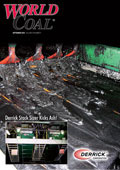Editorial comment
Last month saw a couple of historic events occur in Asia: one of global significance; the other, perhaps more parochial, but with potentially important repercussions for the coal industry.
Register for free »
Get started now for absolutely FREE, no credit card required.
To start with the big event of the month: China overtook Japan as the world’s second largest economy. This is not in itself a surprise, but it has raised concerns in some Western quarters that China will overtake the US as the world’s largest economy sooner than expected. Whether this turns out to be true is more than a little moot: there are many things that can change a country’s economic development as the events of the past two years have shown. Besides, China’s competition with the US will, in the long-term, come second to its contest with a country far closer to home: India.1
In the coal industry, this is already happening. China and India’s demand for coal is set to define the industry for the foreseeable future. At best, their competition for the resource will provide great opportunities to enrich resource-rich – but often cash poor – countries around the world. But it should also be remembered that these two countries share an acrimonious history: watching their relationship develop should prove fascinating.
So to the more parochial event of the month: the Australian general election – long anticipated by this column – threw up a hung parliament, the first in the country since 1940. As World Coal goes to press, a new Government is yet to be formed. But having become something of a fan of Australia’s piquant approach to politics over the past few months, I will watch with interest for the final result and its implications for the country’s vast mining industry.
1. “Contest of the century”, The Economist, (August 21st – 27th 2010), p. 9; “A Himalayan rivalry”, The Economist, (August 21st – 27th 2010), p. 17 – 20.


